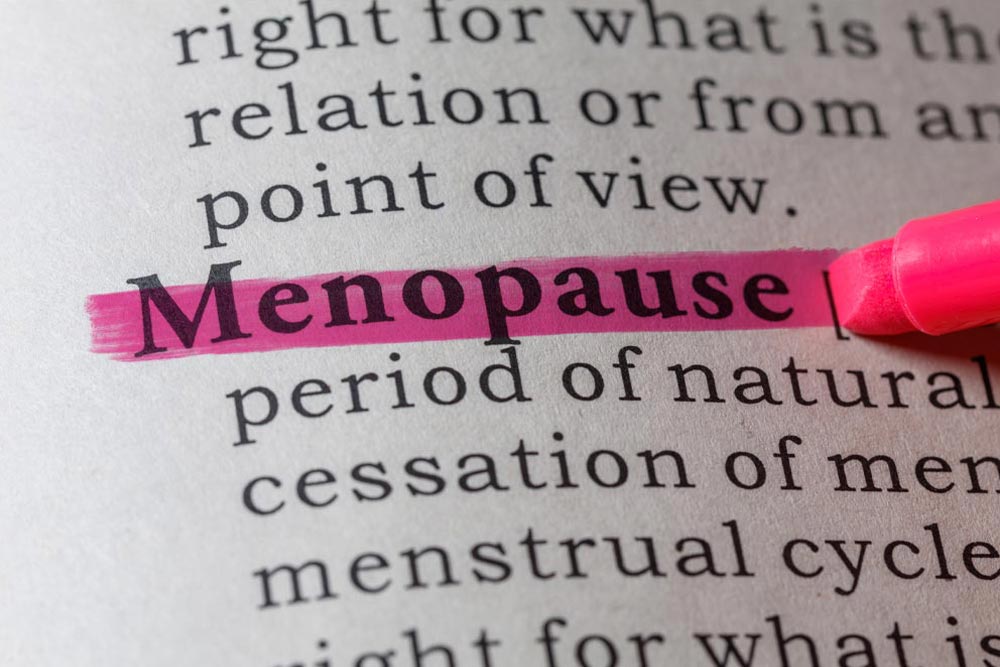Hormone Replacement Therapy For Women
Menopause is something that every woman will go through during their lifetime, but some struggle with its symptoms more than others. Hormone Replacement Therapy can help address some of the issues brought on by changes during menopause. With our simple, easy-to-use telehealth program, you can begin your HRT journey from the comfort of your own home.
Hormone Replacement Therapy for Women
As women grow older, their reproductive hormones (estrogen, progesterone, and testosterone) decrease, which can cause a variety of health problems. This hormonal imbalance can lead to numerous troublesome symptoms such as hot flashes, bladder control issues, sexual dysfunction, sleeping disorders, unstable moods and more.
Furthermore, thyroid dysfunction is frequently misdiagnosed and can create issues like exhaustion, increased weight, despondency and hairloss. However, there are many methods of treatment to help women get back their hormone equilibrium and resume normal lives.


What is Hormone Replacement Therapy?
Hormone replacement therapy (HRT) is a therapy designed to restore hormones to optimum levels in the body. This treatment is recommended for women who are experiencing symptoms or conditions related to imbalanced sex hormones (estrogen, progesterone and/or testosterone) or thyroid disorders.

Hormone Replacement Therapy for Women
As women grow older, their reproductive hormones (estrogen, progesterone, and testosterone) decrease, which can cause a variety of health problems. This hormonal imbalance can lead to numerous troublesome symptoms such as hot flashes, bladder control issues, sexual dysfunction, sleeping disorders, unstable moods and more.
Furthermore, thyroid dysfunction is frequently misdiagnosed and can create issues like exhaustion, increased weight, despondency and hairloss. However, there are many methods of treatment to help women get back their hormone equilibrium and resume normal lives.

What is Hormone Replacement Therapy?
Hormone replacement therapy (HRT) is a therapy designed to restore hormones to optimum levels in the body. This treatment is recommended for women who are experiencing symptoms or conditions related to imbalanced sex hormones (estrogen, progesterone and/or testosterone) or thyroid disorders.
What Is Perimenopause?
Perimenopause is the time in a woman’s life when the body begins to transition toward menopause. It usually starts around the age of 45 and can last anywhere from 4-8 years. During this time, women will experience a decrease in their reproductive hormones (estrogen and progesterone) which will lead to changes in their menstrual cycle. Common symptoms of perimenopause include night sweats, hot flashes, irregular periods, sleep disturbances, mood changes, vaginal dryness, thinning hair, and breast tenderness. It is important to keep in mind that these symptoms may not all occur at once, and they can be different from one woman to another.
Aside from physical symptoms, perimenopause can also be emotionally challenging. Women may experience increased anxiety and difficulty focusing, as well as unpredictable moods swings. Some women may also become more aware of their mortality and aging, leading to feelings of sadness, confusion, and worry. It is important to talk to a doctor about any symptoms of perimenopause to rule out any underlying medical conditions. There are treatment options available, such as hormone replacement therapy or lifestyle changes, to help reduce or relieve symptoms. Along with seeking medical help, self-care is important for women going through this transition, including exercising regularly, mindfully reducing stress, eating a healthy balanced diet, and getting enough sleep.


What Is Perimenopause?
Perimenopause is the time in a woman’s life when the body begins to transition toward menopause. It usually starts around the age of 45 and can last anywhere from 4-8 years. During this time, women will experience a decrease in their reproductive hormones (estrogen and progesterone) which will lead to changes in their menstrual cycle. Common symptoms of perimenopause include night sweats, hot flashes, irregular periods, sleep disturbances, mood changes, vaginal dryness, thinning hair, and breast tenderness. It is important to keep in mind that these symptoms may not all occur at once, and they can be different from one woman to another.
Aside from physical symptoms, perimenopause can also be emotionally challenging. Women may experience increased anxiety and difficulty focusing, as well as unpredictable moods swings. Some women may also become more aware of their mortality and aging, leading to feelings of sadness, confusion, and worry. It is important to talk to a doctor about any symptoms of perimenopause to rule out any underlying medical conditions. There are treatment options available, such as hormone replacement therapy or lifestyle changes, to help reduce or relieve symptoms. Along with seeking medical help, self-care is important for women going through this transition, including exercising regularly, mindfully reducing stress, eating a healthy balanced diet, and getting enough sleep.
Symptoms Of Perimenopause
Perimenopause is the transitional period between a woman’s premenopausal and postmenopausal states. Common symptoms experienced during perimenopause include:
Irregular periods
Hot flashes & night sweats
Low libido
Vaginal dryness
Anxiety and mood swings
Difficulty sleeping
Weight gain/bloating
Thinning hair
Breast tenderness
Joint and muscle aches
Memory problems
Fatigue
Symptoms Of Perimenopause
Perimenopause is the transitional period between a woman’s premenopausal and postmenopausal states. Common symptoms experienced during perimenopause include:
Irregular periods
Hot flashes & night sweats
Low libido
Vaginal dryness
Anxiety and mood swings
Difficulty sleeping
Weight gain/bloating
Thinning hair
Breast tenderness
Joint and muscle aches
Memory problems
Fatigue

What Is Menopause?
Menopause is the time in a woman’s life when menstrual periods permanently stop, signifying the end of her reproductive years. All women go through menopause, usually between the ages of 45 and 55. The average age for menopause in the United States is 51. Menopause occurs because the ovaries stop producing the hormones estrogen and progesterone. Menopause is a gradual process and can last 3 to 5 years. During the transition to menopause, your body gradually produces less estrogen and progesterone. This transition is called perimenopause. As hormones levels decrease, you can expect certain changes, both physical and emotional. These include irregular periods, hot flashes, night sweats, mood swings, difficulty sleeping, dry skin and vaginal dryness. Other common symptoms include weight gain, difficulty concentrating and decreased sex drive.
While menopause can bring a range of changes, there are many ways to cope with them. Eating a balanced diet, exercising regularly, reducing stress, and seeing your doctor for regular check-ups can be helpful. Your doctor may also recommend hormone replacement therapy or other treatments, such as antidepressants or anti-anxiety medications, to help regulate your symptoms.
What Is Menopause?
Menopause is the time in a woman’s life when menstrual periods permanently stop, signifying the end of her reproductive years. All women go through menopause, usually between the ages of 45 and 55. The average age for menopause in the United States is 51. Menopause occurs because the ovaries stop producing the hormones estrogen and progesterone. Menopause is a gradual process and can last 3 to 5 years. During the transition to menopause, your body gradually produces less estrogen and progesterone. This transition is called perimenopause. As hormones levels decrease, you can expect certain changes, both physical and emotional. These include irregular periods, hot flashes, night sweats, mood swings, difficulty sleeping, dry skin and vaginal dryness. Other common symptoms include weight gain, difficulty concentrating and decreased sex drive.
While menopause can bring a range of changes, there are many ways to cope with them. Eating a balanced diet, exercising regularly, reducing stress, and seeing your doctor for regular check-ups can be helpful. Your doctor may also recommend hormone replacement therapy or other treatments, such as antidepressants or anti-anxiety medications, to help regulate your symptoms.

Symptoms Of Menopause
Menopause is associated with a number of changes within the body. The key to managing these changes is recognizing symptoms of menopause, which include:
Hot flashes
Night sweats
Irregular periods
Vaginal dryness
Sleep disturbances
Weight gain
Mood swings
Declining libido
Thinning hair/hair loss
Memory Lapses
Difficulty concentrating
Joint and muscle pain
Symptoms Of Menopause
Menopause is associated with a number of changes within the body. The key to managing these changes is recognizing symptoms of menopause, which include:
Hot flashes
Night sweats
Irregular periods
Vaginal dryness
Sleep disturbances
Weight gain
Mood swings
Declining libido
Thinning hair/hair loss
Memory Lapses
Difficulty concentrating
Joint and muscle pain
Long-Term Risks Of Menopause
Heart Disease
Menopause is associated with a higher risk of developing heart disease due to the decline in estrogen levels. Estrogen plays a role in regulating blood pressure, inflammation, blood clotting, and cholesterol levels. The decrease in estrogen can lead to a higher risk of heart disease.
Osteoporosis
Osteoporosis is a common long-term health risk of menopause since estrogen is important for maintaining strong bones. Without enough estrogen, bones can become weak and brittle.
Urinary Incontinence
As women go through menopause, they often experience changes in their urinary system that can lead to urinary incontinence. Low levels of estrogen can lead to a weakening of the pelvic floor muscles, which can make it more difficult to control urine.
Cognitive Decline
Menopause can also lead to changes in brain function, which can cause memory problems and other cognitive impairments. Research has shown that hormone replacement therapy can help reduce this risk in some cases.
Vaginal Dryness
Vaginal dryness is a common symptom of menopause because of the decrease in estrogen. This can cause discomfort and make sexual intercourse painful.
Long-Term Risks Of Menopause
Heart Disease
Menopause is associated with a higher risk of developing heart disease due to the decline in estrogen levels. Estrogen plays a role in regulating blood pressure, inflammation, blood clotting, and cholesterol levels. The decrease in estrogen can lead to a higher risk of heart disease.
Osteoporosis
Osteoporosis is a common long-term health risk of menopause since estrogen is important for maintaining strong bones. Without enough estrogen, bones can become weak and brittle.
Urinary Incontinence
As women go through menopause, they often experience changes in their urinary system that can lead to urinary incontinence. Low levels of estrogen can lead to a weakening of the pelvic floor muscles, which can make it more difficult to control urine.
Cognitive Decline
Menopause can also lead to changes in brain function, which can cause memory problems and other cognitive impairments. Research has shown that hormone replacement therapy can help reduce this risk in some cases.
Vaginal Dryness
Vaginal dryness is a common symptom of menopause because of the decrease in estrogen. This can cause discomfort and make sexual intercourse painful.

Do Women Really Need To Worry About Testosterone?
Low testosterone levels in women are a sign of reduced fertility, libido, and overall health. Low levels of testosterone in women can also be caused by menopause, childbirth, certain medical conditions, and radiation therapy. Women with low testosterone may experience other symptoms such as fatigue, depression, joint and muscle pain, and anxiety. Treatment options for low testosterone levels in women vary depending on the cause of the condition. If the cause is due to a medical condition, treating the underlying condition may help to lower the testosterone levels. If the cause is due to menopause or childbirth, hormone replacement therapy may be recommended. In some cases, supplementation with testosterone or other hormones, such as DHEA, may also be recommended.
Symptoms Of Low Testosterone In Women
Low Libido
Women who have low testosterone levels often experience a decreased libido and difficulty achieving orgasm.
Weight Gain
Women with low testosterone experience difficulty with weight loss, and in some cases even weight gain due to unhealthy levels of androgens.
Fatigue
Women with low testosterone may often experience fatigue, difficulty concentrating, and difficulty sleeping.
Irregular or Absent Periods
Low testosterone levels can cause irregular or absent menstrual cycles or excessive bleeding during cycles.
Reduced Muscle Mass and Bone Density
Women with low testosterone may experience a decrease in muscle mass and bone strength.
Anxiety and Depression
Many women with low testosterone also struggle with anxiety and depression.

Symptoms Of Low Testosterone In Women
Low Libido
Women who have low testosterone levels often experience a decreased libido and difficulty achieving orgasm.
Weight Gain
Women with low testosterone experience difficulty with weight loss, and in some cases even weight gain due to unhealthy levels of androgens.
Fatigue
Women with low testosterone may often experience fatigue, difficulty concentrating, and difficulty sleeping.
Irregular or Absent Periods
Low testosterone levels can cause irregular or absent menstrual cycles or excessive bleeding during cycles.
Reduced Muscle Mass and Bone Density
Women with low testosterone may experience a decrease in muscle mass and bone strength.
Anxiety and Depression
Many women with low testosterone also struggle with anxiety and depression.
Our Telemedicine Process

Step 1
Complete Our Online Questionnaire
Step 2
Schedule Your Free Consultation
After completing our questionnaire, you’ll receive a text message with instructions to download our telemedicine app and schedule your free consultation with one of our physicians.


Step 3
Review Your Options
During your free consultation, the physician will review your questionnaire with you. Together, you’ll discuss customized care options for your treatment.
Step 4
Enroll In The Program
Once you’ve reviewed your options with one of our physicians, you’ll be enrolled in the program. You’ll receive a lab order for a blood test to be completed at the lab of your choice.


Step 5
Establish A Treatment Plan
Schedule a time with your Bodyshop Wellness physician to review your lab results. They’ll determine a treatment plan and what prescriptions you need.
Step 6
Receive Your Medication
Prescriptions are delivered right to your door. If you need any training with injections, we’re here to help with that, too! Repeat steps 4-6 every 90 days.


Step 1
Complete Our Online Questionnaire

Step 2
Schedule Your Free Consultation
After completing our questionnaire, you’ll receive a text message with instructions to download our telemedicine app and schedule your free consultation with one of our physicians.

Step 3
Review Your Options
During your free consultation, the physician will review your questionnaire with you. Together, you’ll discuss customized care options for your treatment.

Step 4
Enroll In The Program
Once you’ve reviewed your options with one of our physicians, you’ll be enrolled in the program. You’ll receive a lab order for a blood test to be completed at the lab of your choice.

Step 5
Establish A Treatment Plan
Schedule a time with your Bodyshop Wellness physician to review your lab results. They’ll determine a treatment plan and what prescriptions you need.

Step 6
Receive Your Medication
Prescriptions are delivered right to your door. If you need any training with injections, we’re here to help with that, too! Repeat steps 4-6 every 90 days.
